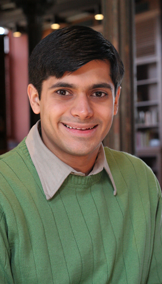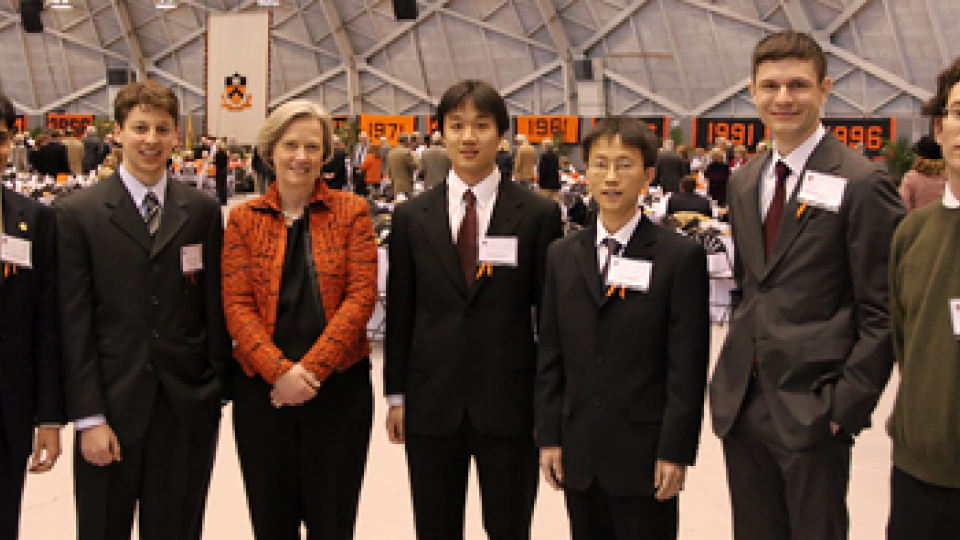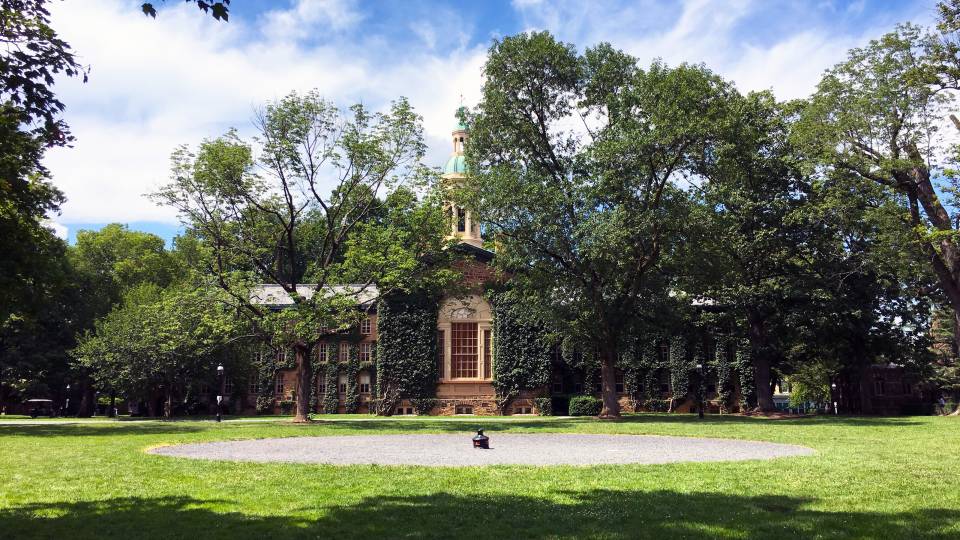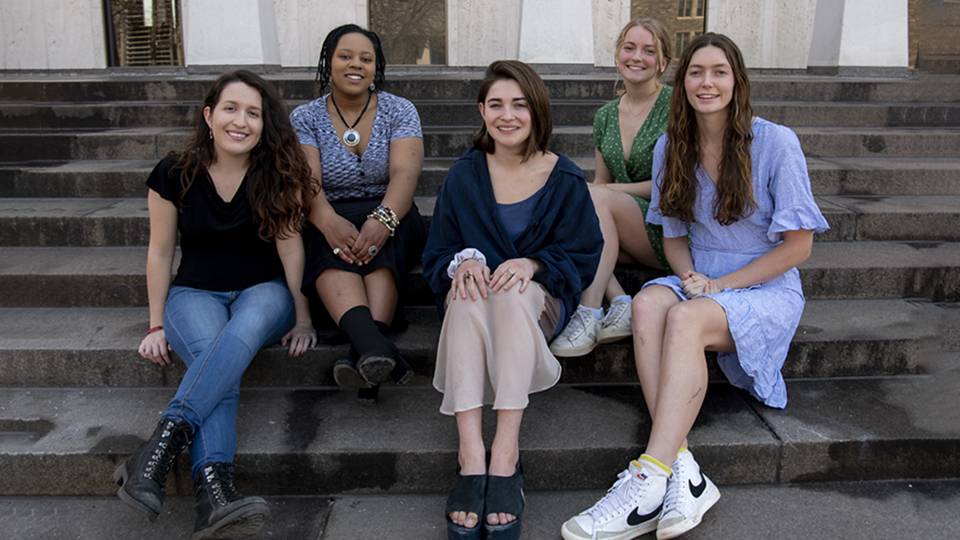Princeton University seniors Soraya Umewaka and James R. Williams
each have been awarded the Henry Richardson Labouisse '26 Prize, which
will allow them to undertake postgraduate projects in Brazil and India,
respectively.
The Labouisse fellowship provides $25,000 to support research in
developing countries by a graduating senior or a first-year alumnus or
alumna who intends to pursue a career devoted to problems of
development and modernization.
Umewaka, who is majoring in comparative politics, will work in Maceio,
a city in northeastern Brazil, with a nongovernmental organization
called Centro Ere. She will be mentoring street children and creating a
documentary about a buddy system that links street children with
mentors, many of whom were once street children themselves.
Umewaka already has had extensive experience working with street
children. For her senior thesis, she traveled to Ecuador, Cambodia and
Laos to investigate how the different political systems affect street
children. While in Ecuador in summer 2005, she made a documentary on
children's experience living on the streets. In summer 2003, she served
as an intern with the Afghan Foundation for Culture and Civil Society
and shot footage of street children that resulted in a film,
"Afghanistan Unveiled." She also created a documentary, "Lost Voices,"
about street children in Beirut, Lebanon.
A native of Tokyo, Japan, Umewaka is a member of Princeton UNICEF and
the Princeton Justice Prison Reform Committee. In 2003, she was part of
a student group, SPARKS, which established a school in Kabul,
Afghanistan. She also is a Noh actress, and has performed lead roles in
the Japanese traditional theater since age 3.
Umewaka hopes to become a professional advocate for the plight of
street children and development worldwide, using her passion for
documentary filmmaking to mobilize support for the challenges they face
and for their own efforts to create decent lives for themselves.
Williams, who is majoring in the Woodrow Wilson School of Public and
International Affairs, will serve as an apprentice to the well-known
Indian environmental and human rights activist-lawyer M.C. Mehta. He
will study the practice of environmental law as a tool to empower
local, disenfranchised communities. He will work most closely with the
Dahanu Taluka Environmental Welfare Association, which has mounted a
successful legal defense against encroaching industrialization and
associated pollution in the wider Mumbai region.
Williams, who is from Portland, Ore., was the co-winner this year of
the University's Moses Taylor Pyne Honor Prize, the highest general
distinction conferred on an undergraduate. In 2005, he won a Truman
Scholarship, which recognizes leadership potential, intellectual
ability and commitment to public service. Eventually, he hopes to
attend law school and to pursue a career in politics.
During high school, Williams served as a representative to the Portland
board of education. He has returned to Portland each summer to do
service work, including running a program that helps high school
students develop the knowledge and skills to deal with education
funding and curriculum issues. He also has been to India several times
to conduct environmental education training for teachers and
administrators.
Williams has served as chair of the Student Volunteers Council,
Princeton's largest student organization, and as an officer of the
Religious Life Council, an interfaith group sponsored by the
University's Office of Religious Life. He also works with Campus
Compact, a national nonprofit organization dedicated to promoting civic
engagement in higher education, and is co-editor of a book published by
Campus Compact titled "Students as Colleagues: Expanding the Circle of
Service-Learning Leadership." He has been active in Princeton's
Undergraduate Student Government and has been a member of the
University's Priorities Committee, which serves as the mechanism for
recommending fiscal and programmatic priorities.




